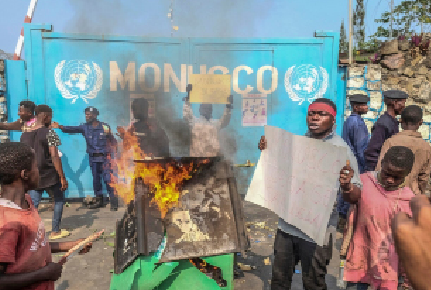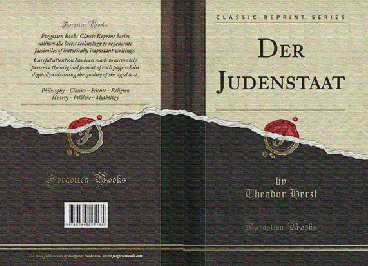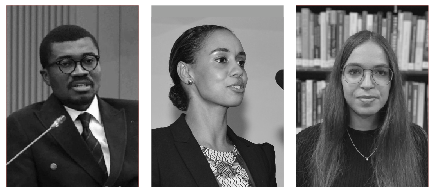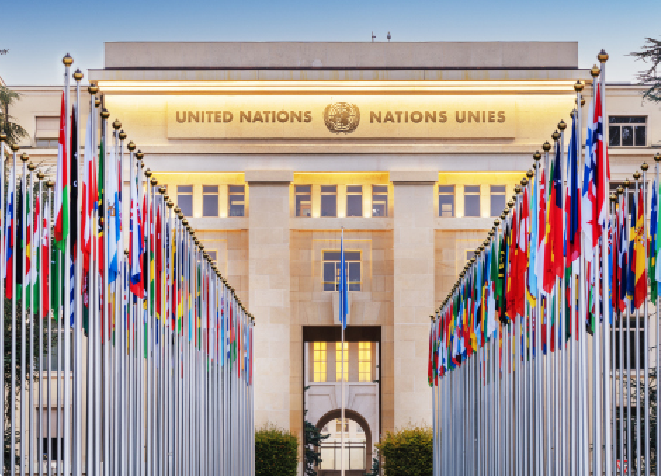The Illusion of Neutrality
What if the ‘rules-based global order’ we’ve been taught to trust is merely a grand illusion?. What if the organizations designed to ensure peace and justice are, in fact, nothing more than the architects of a grand design, their neutral facades a canvas for the brushstrokes of Western hegemony, concealing its true nature from the world?
The dominant discourse on the modern global order frequently presents it as a rules-based framework that has been painstakingly built on the foundations of international law and reason. Organisations like the World Trade Organisation, the United Nations (UN), and the Bretton Woods Institutions (which include the World Bank and International Monetary Fund) are commonly portrayed as unbiased arbiters and promoters of international cooperation. A critical analysis, however, shows that this alleged neutrality is mostly a myth. This article contends that liberalism is the underlying and self-legitimizing principle of the current global order, which is essentially built to uphold the hegemony of Western powers through the past and continue to do so even in this period where accountability counts for every actions taken in the righteousness of the humanity in the courts where rules are made to keep the order. Through a thorough examination of significant case studies, such as humanitarian intervention, the “War on Terror,” nuclear proliferation, and the persistent problem of Israel, this analysis will reveal this underlying agenda. It will then conclude with an urgent call for UN Security Council reform as a critical step towards decolonising global governance.
Liberalism Legitimizing Hegemony
Liberalism, far from being a universal and neutral ideology, is presented as a uniquely Western concept deliberately used to establish and increase Western dominance. Its philosophical foundations are firmly rooted in Western intellectual traditions, drawing from Greek rationalism, Roman Stoicism, Christianity, Newtonian physics, and the critique of the European ancien régime. This historical heritage positions liberalism as inherently Western, yet its advancement is portrayed as a natural and acceptable development for all societies.
Liberalism’s primary means of upholding Western hegemony is its ability to legitimize itself. It thrives on perceived consent, allowing the “West” to maintain its dominant position. By portraying the spread of liberal values as a natural and advantageous endeavor, Western powers use their influence to create a liberal world order and strengthen their hegemonic position. This strategy gives the hegemon the appearance of neutrality, hiding its sources and beneficiaries, and avoiding direct conflict and internal opposition by presenting a particular ideological framework as universally desirable.
This hegemonic project is furthered through three interrelated avenues: international institutions, international trade, and democracy promotion, creating a vicious cycle. International organizations like the WTO, the UN, and the Bretton Woods Institutions are more than impartial platforms. They are actively employed to uphold and extend Western hegemony’s legitimacy. As products of the current hegemonic order, these bodies ideologically legitimize its norms, embody rules that facilitate the expansion of hegemonic world orders, and coopt elites from peripheral nations while assimilating counter-hegemonic ideas. For example, the IMF’s Poverty Reduction Strategy Papers (PRSPs) are manipulated forms of liberal ideology promoting dominant economic forces. The UN is specifically described as a tool for institutionalizing and regulating this order, providing states with a vital avenue for legitimacy. The term “absorb counter-hegemonic ideas” suggests that opposing viewpoints are incorporated and neutralized into the dominant liberal framework, creating a self-reinforcing system that marginalizes alternatives. This shows that the “reason and law” of the global order are not universal but shaped through Western liberal values.
International trade, based on free trade, competition, and Western capitalism, is another effective tool for maintaining hegemony. By promoting the idea of absolute and relative gains, the “West” aims to unify the world through economic liberalism and attract new states to its system. The WTO, for instance, functions on the premise that capitalist free trade is advantageous and normatively valuable. This economic integration forces states, even powerful ones, to adhere to Western liberal economic principles to fulfill their developmental objectives, creating structural dependency. The “argument of absolute and relative gains” becomes a false lure, concealing the fundamental absence of other workable routes to international success. This highlights a type of covert coercion, where the neoliberal global order offers a single path to development, limiting the sovereignty and policy choices of non-Western states and reinforcing Western hegemony economically. Nations like China are essentially forced to adopt the Western capitalist system despite their increasing economic might because “the road to global power, in effect, runs through the Western order and its multilateral economic institutions.”
Finally, democracy promotion, fundamentally Western in origin, unites the democratic industrial world and pressures non-Western nations to liberalize politically and economically, often by importing American and Western European policies. US foreign policy has historically been based on the Lipset (1959) hypothesis that economic development and democracy are causally related. The goal is to integrate autocratic regimes into the liberal system to increase cooperation and eventual conversion to democracy. This apparent agreement frequently degenerates into covert coercion when Western nations impose democracy externally, exposing the hegemonic project’s coercive nature. The need for states to adopt the Western capitalist system to acquire political power, lacking other practical choices, further highlights this covert coercion.
Humanitarian Interventions
Humanitarian intervention is frequently portrayed as a morally required response to extreme suffering, defined as the use or threat of military force across borders to stop serious human rights violations without the target state’s consent. Ostensibly driven by humanitarian goals, it entails meddling in a state’s domestic affairs. However, there is great ambiguity due to the lack of a single, widely recognized legal definition, with interpretations often influenced by the field of study (law, ethics, or politics). This definitional flexibility benefits hegemonic powers strategically, allowing a wide interpretation of what qualifies as a “humanitarian crisis” and what calls for military action. By disguising self-interested actions in universalist rhetoric, states can portray interventions motivated by strategic interests such as resource control or geopolitical influence as morally required humanitarian actions, contributing to the “illusion of neutrality.” Since the definition of humanitarian intervention is ambiguous, its implementation is determined by the political will and interpretive authority of dominant states rather than impartial legal or ethical standards, making it a tool for imposing power under a humanitarian guise.

The idea of humanitarian intervention originated with Hugo Grotius and European politics in the 17th century. Many post-World War II military interventions, such as those by the United States in Latin America and France in the Central African Republic, were retroactively referred to as “humanitarian.” In the 1990s, the phrase gained widespread use in reaction to “ethnic cleansing” and genocides. Since then, the UN Security Council has authorized the use of force in situations previously deemed “internal” conflicts, greatly expanding its definition of “threats to international peace” to include mass displacement.
According to a critical viewpoint, “humanitarian intervention” is a contemporary rebranding of the 19th-century “civilizing mission.” The 20th century’s transition to neo-colonialism involved repackaging this mission with ostensibly “universal” values like “spreading democracy,” “national security,” and “humanitarian intervention.” Nineteenth-century international legal actors distinguished between “civilized” and “uncivilized” peoples, claiming “savages” engaged in “lawless warfare practices” by failing to distinguish between combatants and non-combatants. Colonizers themselves frequently failed to draw these distinctions, as colonialism entailed violent subjugation of civilians. Colonial legal frameworks weakened anti-colonial resistance and strengthened colonial state sovereignty by delegitimizing non-state violence as “uncivilized.” This old defense of colonial violence that “uncivilized” peoples needed to be rescued for their own sake or for world peace has been modified. “Humanitarian intervention” and the “War on Terror” are continuations of a colonial discourse justifying external military action against non-Western states by portraying their internal conflicts or resistance as a threat to “universal” values or as “terrorism.” This exposes a long-standing pattern where Western powers use moral and legal justifications to support strategic interventions, upholding a neo-colonial world order where opponents of the liberal hegemonic project are labeled “uncivilized.”
This “mystification of neo-colonial violence” is sustained by the shift to neo-colonial international law, maintaining that state violence is essentially legitimate while non-state violence is illegitimate. The Global North’s denunciations of “terrorism” are closely tied to the colonial concept of “uncivilized warfare,” rebranded as “terrorism” in the 19th century. Neo-colonial states present their own violence as proportionate and legal by branding it as “national security,” “war on terror,” or “humanitarian intervention,” even though they often use the same types of violence they denounce as “terrorism.”
Additional criticisms of humanitarian intervention point to its documented shortcomings and unforeseen consequences. Interventions lacking a clear plan frequently lead to “open-ended chaos” rather than significant progress, often jeopardizing the intervening states’ obligations to their own citizens. National interests frequently play a significant, if unacknowledged, role, casting doubt on the emphasis placed on “purity or primacy of intention.” For example, the “War on Terror” is portrayed as a neo-colonial branding exercise exaggerating anxieties about “terrorism” to misrepresent the comparatively greater oppression and violence committed by neo-colonial states. Anti-colonial groups usually seek decolonization rather than annihilation, and non-state groups are generally “incapable of systemic violence or genocide” due to a lack of technical capacity. The international legal system frequently misrepresents neo-colonial violence to preserve its legitimacy, even though neo-colonial states are “exponentially more destructive.”
Nuclear Hypocrisy and International Law
Despite being supposedly created to stop nuclear weapons proliferation and guarantee peaceful nuclear development, the international non-proliferation regime often employs a harsh double standard that reveals the fundamental workings of Western hegemony and the undermining of international law. Iran’s nuclear program is a clear example of this systemic inequity.
There have been allegations of manipulation by the International Atomic Energy Agency (IAEA), a body created to confirm the peaceful use of nuclear weapons, to further geopolitical objectives. In one prominent case, Director General Rafael Grossi’s “misleading report” led the IAEA’s Board of Governors to adopt a “politically charged resolution.” This report expressed “ambiguous concerns about Iran’s nuclear program” without providing “conclusive evidence of violations.” The resolution, mainly pushed by the United States and the European Troika, was quickly passed and embraced by Israel despite this lack of evidence. Israel attacked Iranian nuclear facilities within 24 hours of this resolution, specifically referencing the IAEA report and the resolution as support. This illustrates a direct causal relationship where the IAEA report’s perceived neutrality is used as a pretext to justify actions that further particular geopolitical objectives. The institution’s technical findings are weaponized, turning a verification mechanism into a legitimizing tool for coercive foreign policy. This pattern implies that the “illusion of neutrality” is actively created by subverting international organizations, transforming them from autonomous arbiters of international law into extensions of Western hegemonic power. A fundamental contradiction is revealed: the rhetoric of a universal legal order conceals a reality of power politics and selective impunity, especially regarding the use of force and nuclear proliferation. This demonstrates that the neutrality of international law is a myth, as its enforcement is essentially biased towards the interests of the hegemon.
What Israel did when it attacked nuclear facilities protected by the IAEA is a “blatant violation of international law and a direct breach of Article 2(4) of the United Nations Charter,” which forbids the use or threat of force against any state’s territorial integrity or political independence. Targeting these facilities would undermine not only Iranian sovereignty but also the non-proliferation regime as a whole because they operate peacefully and are regularly inspected by international authorities. Furthermore, the U.S. president has publicly threatened more strikes on Iran’s nuclear facilities, which is clearly against international law.
The obvious double standard is revealed when contrasting Israel’s treatment with Iran’s. The Western narrative claims a nuclear-armed Iran would destabilize the region and threaten Israel’s existence. However, this claim ignores Iran’s repeated declarations that its nuclear program is for peaceful purposes, based on its moral and religious beliefs. On the other hand, Israel’s nuclear weapons are undisclosed and not under the purview of the Nuclear Non-Proliferation Treaty (NPT), but the same Western nations do little to address them as a cause of regional instability. As a non-nuclear-weapon state, Iran has complied with the NPT and allowed the IAEA to continuously monitor its program. Even though it was a major factor in escalating tensions, the US’s 2018 withdrawal from the Joint Comprehensive Plan of Action (JCPOA), a legally binding agreement that had effectively curbed Iran’s nuclear activities, is often downplayed in Western discourse. Iran’s defensive missile strikes, sometimes misunderstood as acts of aggression, were retaliation for Israeli aggressions. This selective framing highlights widespread double standards. The legitimacy of non-proliferation arguments is further undermined by the United States, a country with a history of using nuclear weapons and actively updating its arsenal, continuing to support Israel unconditionally while denouncing Iran. Iran has been forced to create a strong defense strategy out of necessity due to persistent threats.
All countries, especially those in the Global South, should be concerned about the perilous deterioration of the rules-based international order and the widening of a double standard, indicated by the IAEA leadership’s silence and the UN Security Council’s inaction in the face of these violations. There is no moral or legal justification for using protected information to support threats or attacks, and the NPT expressly directs the IAEA to confirm peaceful use rather than to support coercion or permit military action. The international legal order becomes a system of institutionalized inequality when powerful states can act without consequence while others are subject to strict regulations. Thus, the idea of a “rules-based international order” is exposed as a front. It is about a system where some states (Western powers and their allies) are exempt from accountability while others are strictly regulated, not about everyone following the rules. Instead of guaranteeing true global justice, this leads to a deeply ingrained “institutionalized inequality” where the laws themselves are created or selectively applied to uphold the current power structure.
Zionism and the History of Colonial Law
Israel’s founding and current policies offer a powerful example of Western neo-colonialism, deeply ingrained in international law. Zionism has openly stated its colonial aspirations since its founding in the 19th century. Early fundraising initiatives like the Jewish Colonization Association (1891) and the Jewish Colonial Trust (1899) used the word “colonization” specifically. In The Jewish State (1896), Zionist founder Theodor Herzl referred to Zionists as colonists when he talked about acquiring “a neutral piece of land” for colonization. This historical background distinguishes Zionism from simple nationalism as a colonial ideology.

The 1917 Balfour Declaration essentially handed the torch of British colonialism in Palestine over to Zionist colonialism. In The Iron Wall (1923), Zionist intellectuals like Vladimir Jabotinsky clearly stated that “Zionist colonization…must either be terminated or carried out in defiance of the will of the native population,” requiring “an iron wall” of military imposition to overcome native resistance. This shows a clear early understanding that the native population would not agree to the Zionist project.
This colonial endeavor has been largely legitimized by international law, often confusingly. By approving a partition plan (Resolution 181) in 1947 that gave 56% of Palestine to Zionists who were a minority compared to native Palestinians the UN General Assembly legitimized Zionist colonialism. This act, approved by international law, gave the indigenous population’s eviction a legal façade. As 19th-century colonialism became “unfashionable or untenable,” Zionists gradually rebranded themselves as a nationalist movement, using nationalist rhetoric and antisemitism in Europe to hide their neo-colonialism, which took the form of settler-colonization of Palestine. In 1948, Zionists massacred more than 750,000 Palestinians and destroyed over 530 villages as part of their ethnic cleansing of Palestine. The UN distorted its image as a “peace-loving State” and essentially ignored Israel’s ethnic cleansing and occupation of 78% of historic Palestine in 1949, even though it recognized a Palestinian right to return and reparations (Resolution 194) in 1948. The branding of Israel as a “democracy,” which helped obscure Zionist neo-colonialism, was made easier by this international legal recognition. This illustrates how colonial violence can be justified and made more mysterious by using international law. The international legal system continues to misrepresent neo-colonial violence by emphasizing “exceptional” rather than “systemic” state violence, while UN resolutions and admissions established a legal framework that legitimized Zionist colonialism.
Neo-colonial violence continued after Israel’s establishment through military rule, incursions, occupation, displacement, massacres, collective punishment, and systemic oppression. This Zionist neo-colonialism was profitable, especially after the 1967 occupations that UN Resolution 242 forbade. Instead of addressing these injustices, “post-colonial” international law has made neo-colonial violence even more mysterious. Israel benefited greatly from labeling its neo-colonial violence as “counterterrorism,” even as UN General Assembly Resolution 38/17 (1983) guaranteed the right to self-determination and armed resistance against colonialism. International law is said to have further enabled Israel’s criminalization of Palestinian resistance through the Oslo Accords (1993), which effectively made a “corrupt gang” “sub-contractors of Zionist colonialism.” This demonstrates a trend where disproportionate state violence is routinely justified by rebranding anti-colonial resistance as “terrorism.” The historical transition from “uncivilized warfare” to “terrorism” effectively criminalizes liberation struggles and upholds the appearance of a valid, rule-based order by escalating anxieties and justifying the brutality of neo-colonial states.
With the support of “colonial technologies,” Zionist colonialism has become more violent over time. Gaza is referred to as a “concentration camp” with cruel conditions, and the West Bank as an “open-air prison.” Israel’s ruthless targeting of civilians during the “great march of return” (2018) is a clear illustration of this rising violence. The neo-colonial Zionist state routinely misrepresents its own excessive violence as “self-defense” and anti-colonial resistance as “terrorism.” The United States has continuously prevented the punitive application of international law against Israel, a crucial component of this perpetuation. Since the beginning of Zionist colonialism, there have been virtually no international legal consequences. This illustrates how neo-colonial powers are structurally unaccountable. It is evident how the international legal system is manipulated to defend neo-colonial sovereignty and territory, undermining its own principles of justice and equality, as the United States consistently uses its veto power to protect Israel from international legal repercussions.
The neo-colonial Zionist state has described the current state of affairs in Palestine as “intentional genocide” against native Palestinians. Israeli officials have freely acknowledged depriving civilians of basic supplies like food, water, electricity, and fuel with the declared goal of “eliminating Gaza.” The magnitude of this violence is highlighted by the tens of thousands killed and displaced in Gaza, and hundreds arrested and killed in the West Bank. The international legal response is criticized for emphasizing “exceptional violence” while largely ignoring “systemic violence,” despite the UN General Assembly calling for a ceasefire and UN officials supporting war crimes investigations. To defend neo-colonial sovereignty and territory, the modern international legal system is charged with mystifying neo-colonial violence. International organizations’ periodic acknowledgment of colonized peoples’ rights but infrequent implementation of those rights is perceived as a distortion of systemic violence intended to obscure neo-colonialism. It appears that international law primarily functions as an “instrument of neo-colonial mystification” because it lacks a legal procedure for terminating colonial sovereignty or reclaiming lost territory.
The Immediate Need to REFORM UNSC
In the post-colonial era, the United Nations Security Council (UNSC), established to promote global balance of power and avoid unilateral decisions, has emerged as a key representation of enduring inequality and the hegemony of some countries. The effects of direct colonization persist, particularly in institutions like the UNSC that uphold historical injustices and power disparities. Resolving these long-standing inequalities is essential to decolonizing the Security Council.
The permanent members (P5) China, France, Russia, the United Kingdom, and the United States were given the ability to veto to prevent actions that might jeopardize major powers’ interests. But this privilege has turned into a tool that mainly helps these strong countries, enabling them to strategically advance their foreign policy objectives and national interests. Former colonial powers retain their influence in international affairs through this calculated use of the veto, a subtle but systematic continuation of colonial practices. As a result, the UNSC’s veto power serves as a structural perpetuator of hegemony, strengthening the interests of a small number of people while preserving colonial power dynamics.
The US, Europe, Russia, and China hold disproportionate dominance in the UNSC, reflecting outmoded global power dynamics. The permanent members no longer fairly reflect the major populations of the world, as about 80 former colonies have gained independence. The P5 currently control a small portion of the world’s population and make up a small portion of UN member states. With European and Western countries holding 47% of the total seats despite making up only 17% of the world’s population, a Eurocentric bias endures despite efforts to include non-permanent members. Furthermore, only wealthy nations with the capacity to mount substantial lobbying efforts typically win and hold onto seats, as demonstrated by the longer tenures of nations like Brazil and Japan relative to Nigeria. This emphasizes the UNSC’s fictitious worldwide representation, as its antiquated membership and Eurocentric slant highlight a growing disconnect between the Council’s composition and the demographics of the modern world.
The P5’s sway over decisions and resolutions is a major factor in the Council’s ongoing failure to stop genocides, settle disputes, and handle crises. These powerful countries prioritize defending their strategic interests. The United States’ repeated vetoes of resolutions urging a permanent ceasefire, the release of hostages, and humanitarian assistance in the Israel-Palestine conflict serve as an example; this is the 45th time since 1945 that the US has exercised its veto power to protect Israel due to strategic alliances and foreign policy objectives. This illustrates how colonial practices continue to perpetuate a conflict born out of colonization. Thus, hegemonic self-interest directly leads to the UNSC’s functional paralysis. Because the P5 put their strategic interests ahead of world peace and security, the Council has been unable to take decisive action on global crises, undermining the UN’s declared mission and revealing its fundamental limitations as a tool of truly global governance.
Critical scholars like Arturo Escobar have questioned whether the UN system itself upholds a global order based on exploitation and inequality. He argues that the current system is biased and that decades of UN development initiatives, loans, and aid have only slightly improved the developing world’s standard of living. Escobar presents a paradox where the P5 maintain their autonomy and the proposed international order forces weaker states to cede their sovereignty, shifting the balance of power in their favor. The current structural arrangement will unavoidably result in a growing disparity in representation and economic diversity as the UN faces upcoming issues like public health emergencies, climate change, and ongoing conflicts.

A thorough examination of the UN Security Council’s organizational structure is necessary to fulfill the call for its decolonization. Proponents like Ovigwe Eguegu, Hannah Ryder, and Anna Baisch suggest doing away with permanent membership and replacing all 15 UNSC seats with temporary posts that are up for reelection every five years. This reform would guarantee continuity by encouraging equal opportunity through non-regional competition and avoiding sustained dominance. They propose that the Security Council’s current privilege of vetoing decisions on behalf of others be openly earned through evidence of accountability and competence. The persistence of colonialism in global governance structures, especially in the UNSC’s power structure, significantly influences and shapes modern international relations and impedes the development of a truly just and comprehensive international order. The UN’s very mission could be in danger if unchecked inequality and unaccountability are not addressed. One of the only realistic ways to provide group solutions to the difficult problems that lie ahead is through a stronger, more adaptable, and democratic UN.
Towards a Decolonized Global Order
This report’s analysis methodically breaks down the appearance of neutrality that frequently envelops the current international order. It illustrates how organizations like the UN, Bretton Woods, World Bank, and IMF purportedly founded on reason and international law operate as highly developed tools to uphold Western hegemony. Liberalism is shown to be the fundamental self-legitimizing principle that sustains this dominance, not a universal and benign ideology. Western powers are able to quietly integrate and normalize their values by strategically emphasizing consent rather than overt coercion, making their agenda seem like the only sensible course for global development and governance.
The analysis of humanitarian intervention demonstrates how colonial narratives from the past, especially the “civilizing mission,” have been reframed and used in modern contexts. By using humanitarian rhetoric to cover up self-serving military actions, powerful states maintain control and resource extraction without the appearance of direct colonization. This is made possible by the definitional ambiguities surrounding such interventions. This consistency demonstrates a profound, enduring trend of defending interventions that ultimately advance hegemonic interests through moral and legal frameworks.
Furthermore, the selective application of international law and the underlying institutionalized inequality within the global order are starkly exposed by the nuclear hypocrisy case, especially as it relates to Iran and Israel. The “rules-based international order” is frequently a front, evidenced by the regular impunity granted to some powerful states and their allies, and the instrumentalization of organizations like the IAEA for geopolitical leverage. Its enforcement is essentially biased and intended to uphold current power structures, instead of guaranteeing true global justice or universal adherence to principles.
Lastly, the thorough examination of Israel’s establishment and current practices as a type of Western neo-colonialism, closely associated with Zionism, demonstrates how international law has been used to justify, enable, and obscure colonial violence. Deep contradictions in the international legal system are exposed by the rebranding of anti-colonial resistance as “terrorism” and the systematic lack of accountability for neo-colonial powers, often protected by the veto power of Western states.
The UN Security Council’s structural flaws are the clearest indication of colonialism’s lingering effects. Its antiquated makeup, Eurocentric slant, and permanent members’ calculated use of the veto power impede efficient global governance and sustain inequality. Prioritizing strategic national interests over global peace and security is the direct cause of the Council’s functional paralysis when handling pressing crises like the Israel-Palestine conflict. Fundamental reform, including the elimination of permanent membership and a reassessment of veto power, is imperative to decolonize global governance and promote a truly equitable and representative international order. Without such breakthrough shifts, the illusion of neutrality will endure, and the international system will continue to serve the interests of a select few rather than the welfare of all countries.

